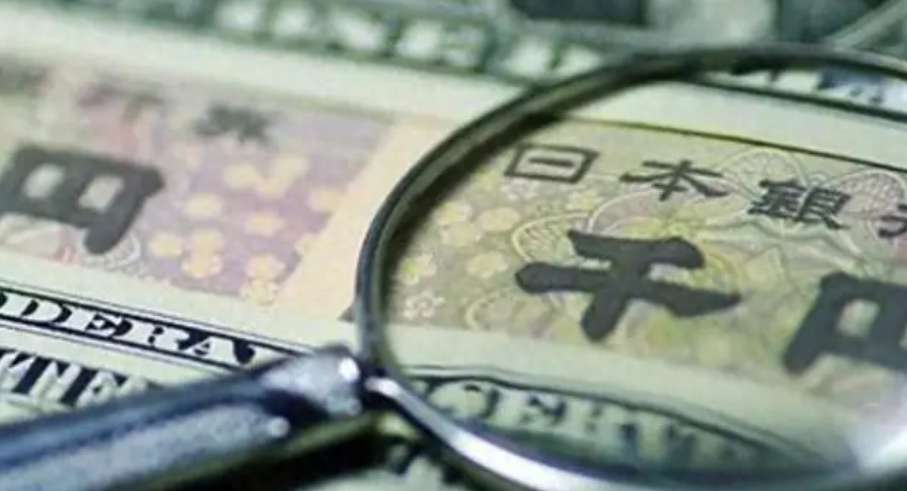A Major Opportunity for the Japanese Economy
Advertisements
The Japanese economy has been at the forefront of discussions among analysts and the general public alike, particularly this year when many observers have noted peculiar trends in both the economy and financial marketsIt has prompted a question: what is going on in Japan's economic landscape? More importantly, can it find a path forward by 2025?
To understand Japan's current economic climate, it's essential to examine the latest dataOn December 27, the Japanese government released economic indicators that present a mixed bag of news, leading to differing interpretations among experts.
According to the data published by Japan’s Ministry of Internal Affairs, several significant trends are observableFor instance, in December, the Tokyo Consumer Price Index (CPI), which excludes fresh food, rose by 2.4% compared to the previous year, a slight uptick from the 2.2% increase recorded in November, although it fell just short of the 2.5% that economists had anticipated
The persistence of inflation over several months has only served to strengthen market expectations that the Bank of Japan (BoJ) may raise interest rates in the near future.
In addition to rising prices, consumer spending exhibits signs of recoveryNovember retail sales increased by 2.8% compared to the same month in the previous year, marking a significant improvement compared to the 1.3% growth seen in OctoberThis leap in consumer spending is indeed encouraging, as it reflects a growing confidence in the economy despite continuous price hikes.
The employment landscape in Japan continues to show positive signs, with the unemployment rate holding steady at a low 2.5% in November, remaining unchanged from the previous monthHistorically, Japan has enjoyed low unemployment rates, which significantly reduces the pressures typically associated with high unemploymentHowever, it is worth noting that while the overall rate appears favorable, disparities exist within certain demographics that should not be overlooked.
On the industrial production front, there was a notable decline of 2.3% in November compared to October's robust 2.8% growth
- US Stock Market Corrections Expected in 2025
- Buffett Ups His Stake!
- The Fed's Path to Resolution in 2025
- Deep Divisions in American Interests
- Russian Goods Stores Gain Popularity Across China
Nonetheless, surveys conducted among companies indicate optimism about future output, forecasting increases of 2.1% in December and 1.3% in JanuaryThese anticipated rebounds are somewhat vital for the health of the manufacturing sector, which plays a pivotal role in Japan's economic framework.
Looking at the broader picture, Japan’s economy did witness a GDP growth of 1.2% in the third quarter of the year, surpassing previous forecasts by economistsWhile this growth rate may not dazzle in an international context, it represents a glimmer of hope in Japan's ongoing struggle against decades of stagnation.
The present economic narrative diverges from a typical "lost decade" scenario often associated with JapanHowever, the notion that Japan can maintain its footing while experiencing overt competition from nations like Germany or even Russia, which recently claimed its GDP will outpace Japan’s, raises eyebrows
This has sparked concerns about the potential vulnerability of the Japanese economy on the global stage.
Forecasts for Japan's GDP growth have taken a conservative turn, with predictions for 2024/25 revised downward from 0.7% to 0.4%. Such adjustments reflect an overall tepid sentiment surrounding Japan's economic prospectsMoreover, behind these numbers lies a troubling reality: Japan has been grappling with a protracted economic malaise that spurs outward investment as households and corporations seek lucrative alternatives abroad.
Incredibly, it’s reported that many Japanese investors, ranging from corporate giants to individual "Watanabe-san" types, have been transferring their capital overseas in search of better opportunitiesThere exists a prevailing belief among the populace that personal wealth can be amassed regardless of national economic conditions, which contributes to a lackadaisical attitude toward the development of local businesses.
This investment trend has left many domestic companies complacent, adopting a “zero-interest” mentality where growth is no longer a priority, wages stagnate, and consumer spending subsides

This situation draws a parallel to the proverbial frog sitting in boiling water, appearing oblivious to the need for any drastic change in behavior.
Does this imply that the Japanese society has entirely resigned itself to passivity in the face of economic adversity? Not quiteRecently, the ascension of more right-leaning politicians within the government signals a desire to push for rate hikesTheir stance emphasizes the necessity of reeling in capital that has fled abroad over recent years—a crucial step toward revitalizing domestic investment and consumption.
So why the urgent need for interest rate hikes? Raising rates could provide a much-needed incentive for investors who have relocated their capital to return to Japan, potentially fostering growth in local enterprises and stimulating consumer activityIn March and July of this year, two instances of interest rate hikes resulted in a stronger yen and a wave of capital repatriation, underscoring the opportunity for revitalization following these policy shifts.
Moreover, augmented inflation rates and the sustained low unemployment offer substantial justification for pursuing higher interest rates, signaling an economic landscape ripe for investment
However, it is critical to recognize that Japan's intricate economic and financial ties to the United States pose a significant challengeJapan's autonomy in making pivotal decisions is hampered by the need to align its strategies with U.Sinterests, particularly during this tumultuous period of economic uncertainty for the American economy.
The United States, facing its economic trials, has vested interests in maintaining solid ties with JapanAny shift towards a more independent economic trajectory for Japan could potentially disrupt the balance of support that the U.Srelies uponIn a recent diplomatic exchange, Japan’s foreign minister issued statements that appeared to convey a message to the U.S., highlighting that if American support wanes, Japan may consider pivoting eastward towards stronger ties with nations like ChinaThis posturing aligns Japan alongside nations like South Korea, which similarly finds itself at a crossroads.
However, it is critical to approach thoughts of a geopolitical pivot with caution
Post Comment